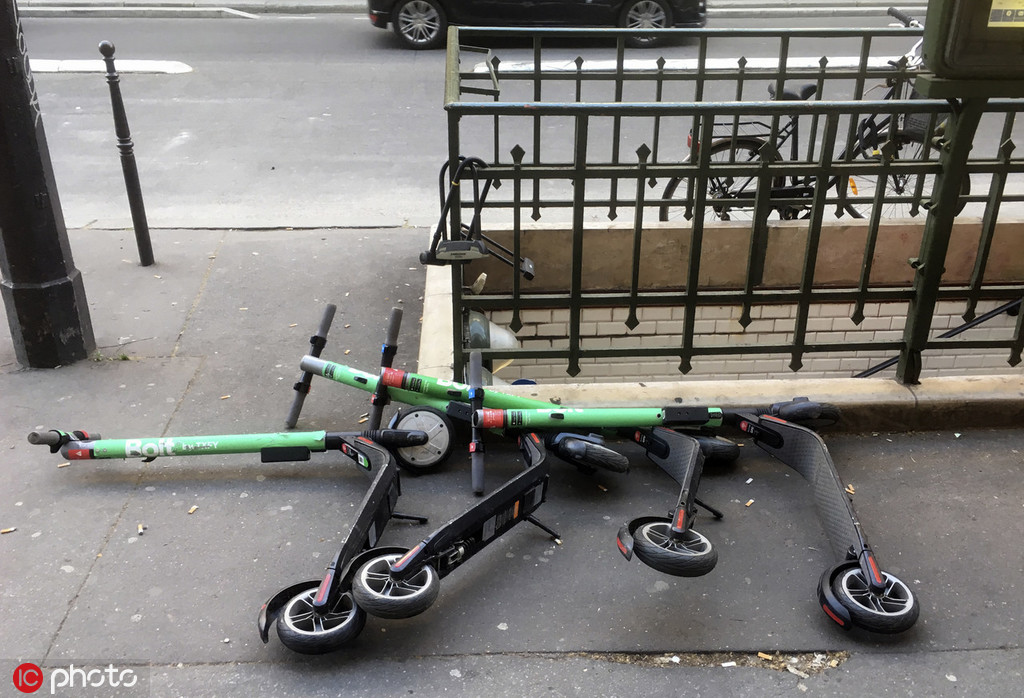Cars make way for one and two wheels in Paris
China Daily | Updated: 2019-07-15 09:31

PARIS - With the wind rushing through their hair, they zip past on bikes, electric scooters and mono-wheels, effortlessly passing lines of hot-and-bothered drivers stuck in the endless Paris traffic.
In the French capital, the new mobility revolution has caught on fast, with locals and tourists embracing the growing array of app-based ways to get around.
And with climate change bringing frequent heat waves and more peak pollution alerts, Paris is beginning to push back against the dominance of the car.
Not only is the city upgrading its public transport system offering of interurban trains, buses and the metro, it is also enjoying an unparalleled explosion of alternatives.
"Our cities have been colonized by cars. They get into the smallest gaps, today we need to put them back into their proper place," says Christophe Najdovski, the city's deputy mayor who has responsibility for transport.
"In Paris, they are only used for 10 percent of daily trips but they take up 50 percent of the public space."
But the city has been at the forefront of innovation, setting up a pioneering bike-share service back in 2007.
Known as Velib', it has since been copied across the globe, from London to Chicago.
Then came the Autolib' electric car-sharing scheme which was followed by a flood of dockless bikes, and then the overnight appearance of e-scooters that exploded onto the streets in the summer of 2018.
And that's without mentioning other private mobility devices such as two-wheeled ehoverboards or electric unicycles.
'A way of life'
Every day, there are about 41 million trips made in the Paris region, of which 15 million are by car and 10 million by public transport.
Since July 1, all diesel vehicles registered before 2006 have been banned from entering the city, but should the authorities go further and shut the entire city center to cars?
Today, just over a third - 37 percent - of Parisian homes have a car, but that drops to one in five in the city center, according to the mayor's office.
"The priority is to enable city dwellers to get around," says Jean-Pierre Orfeuil, an engineer who specializes in urban mobility.
"Generally speaking, those who are using these new means of transport are people who used to use the metro," he said.
"So they haven't played a role in easing the traffic."
Also, these new forms of transport don't work for everyone, notably raising questions for those with families.
And for many city dwellers, the car is a private space akin to their living room which offers a certain form of intimacy, says Orfeuil.
"You can make private calls. You can listen to music."
For Mireille Apel-Muller, a sociologist who heads the City on the Move Institute, mobility is about more than just transport.
"It's a way of life," she said.
"All these new forms of transport require a smartphone and applications which you have to master. Otherwise, it becomes exclusive."
Agence France-Presse
























